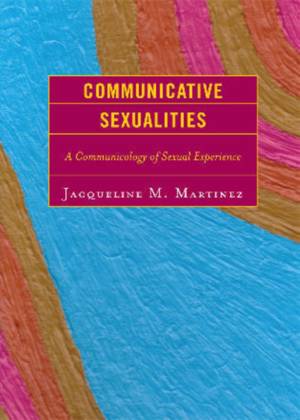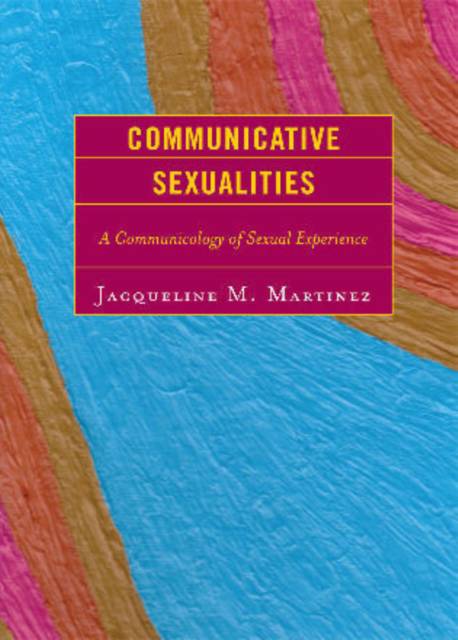
- Retrait gratuit dans votre magasin Club
- 7.000.000 titres dans notre catalogue
- Payer en toute sécurité
- Toujours un magasin près de chez vous
- Retrait gratuit dans votre magasin Club
- 7.000.0000 titres dans notre catalogue
- Payer en toute sécurité
- Toujours un magasin près de chez vous
Communicative Sexualities
A Communicology of Sexual Experience
Jacqueline M Martinez
Livre broché | Anglais
93,45 €
+ 186 points
Format
Description
Communicative Sexualities: A Communicology of Sexual Experience, by Jacqueline M. Martinez, provides an argument for and illustration of how to pursue the direct study of students' lived-experiences of sexuality in a classroom or academic setting. It illustrates how communicology, and its methodological practice of semiotic phenomenology, allows for a sustained and rigorous study of the meaningfulness of sexual experience as it manifests in the immediate, concrete, and embodied realities in the lives of those taking up such a study. Examples from actual classroom experience allows for a detailed consideration of the applied research methodology, as well as the ethical issues involved in making students' experience of sexuality the main subject of the course. Martinez's text features detailed discussions of how to study the lived-experience of sexuality as the subject matter of research. It considers the steps necessary in suspending presuppositions regarding sexuality and gender, particularly those associated with the heterosexual-homosexual binary. Sexuality is understood as inherently good, yet also capable of becoming a means of perpetuating human isolation and degradation as much as an experience of tremendously shared human intimacy and mutual recognition. As an introductory text, Jacqueline M. Martinez's Communicative Sexualities: A Communicology of Sexual Experience is an excellent primer for the advanced study of communicology and semiotic phenomenology as related to the lived-experiences of sexuality and gender.
Spécifications
Parties prenantes
- Auteur(s) :
- Editeur:
Contenu
- Nombre de pages :
- 164
- Langue:
- Anglais
Caractéristiques
- EAN:
- 9780739125366
- Date de parution :
- 16-06-11
- Format:
- Livre broché
- Format numérique:
- Trade paperback (VS)
- Dimensions :
- 152 mm x 226 mm
- Poids :
- 272 g

Les avis
Nous publions uniquement les avis qui respectent les conditions requises. Consultez nos conditions pour les avis.






